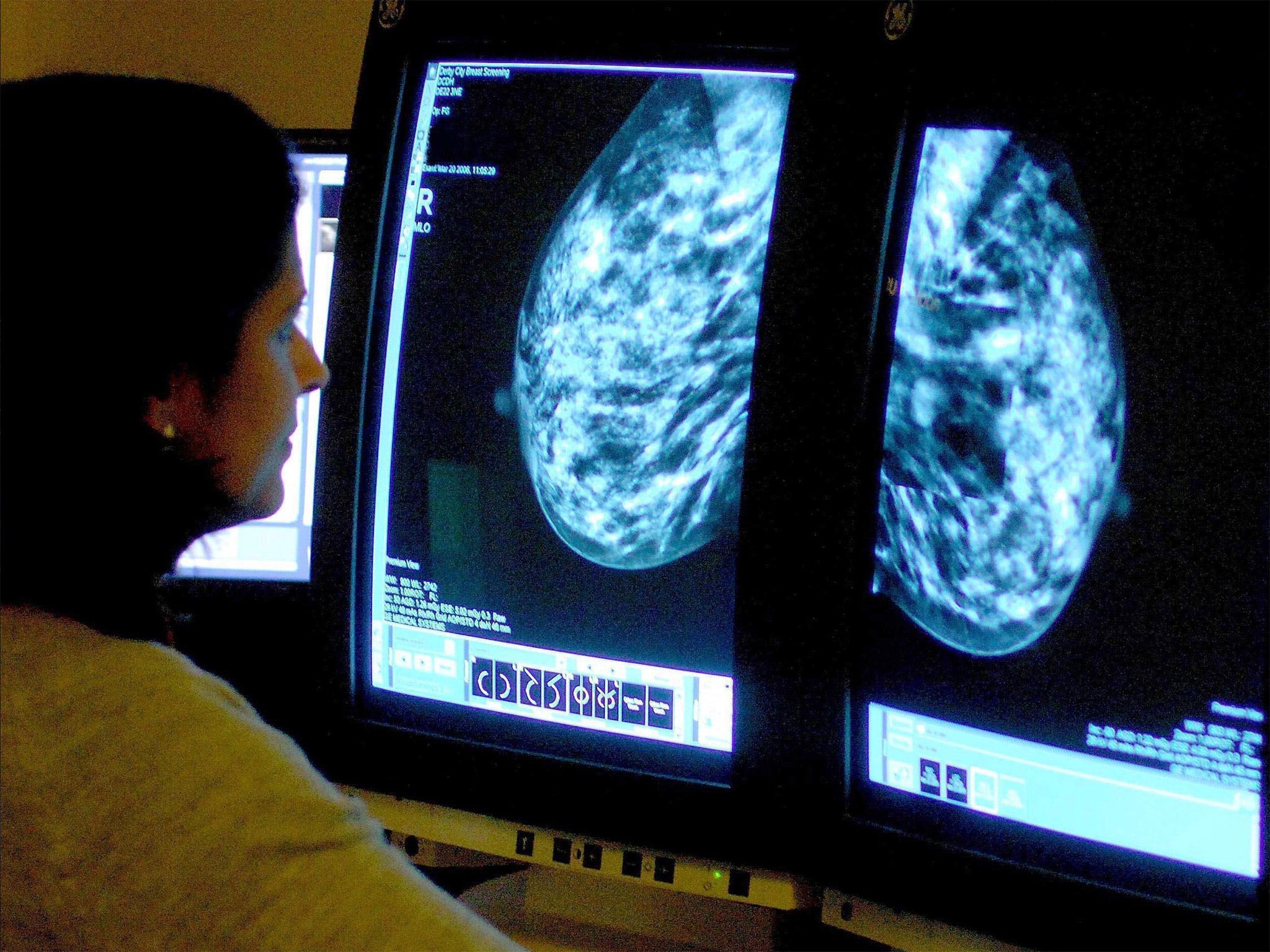Scientists make 'ground-breaking' breast cancer genes discovery
The two studies have been heralded as 'ground-breaking' by charity Breast Cancer Now

Your support helps us to tell the story
From reproductive rights to climate change to Big Tech, The Independent is on the ground when the story is developing. Whether it's investigating the financials of Elon Musk's pro-Trump PAC or producing our latest documentary, 'The A Word', which shines a light on the American women fighting for reproductive rights, we know how important it is to parse out the facts from the messaging.
At such a critical moment in US history, we need reporters on the ground. Your donation allows us to keep sending journalists to speak to both sides of the story.
The Independent is trusted by Americans across the entire political spectrum. And unlike many other quality news outlets, we choose not to lock Americans out of our reporting and analysis with paywalls. We believe quality journalism should be available to everyone, paid for by those who can afford it.
Your support makes all the difference.Research into oestrogen receptors may be the key to explaining why some forms of breast cancer do not respond to treatment, according to two studies presented at the UK Breast Cancer Research Symposium.
The research has been heralded by experts as groundbreaking in informing scientific understanding the disease.
In one study, scientists at the University of Pittsburgh analysed non-inherited mutations in the ESRI gene across 122 samples of breast cancer tumours. The gene provides instructions for making oestrogen receptors, which are present in 80 per cent of oestrogen receptors and can allow oestrogen to drive the growth of breast cancer.
Some of the samples examined were primary breast tumours, while others were secondary breast cancer which had spread to the brain, bone or bloodstream.
They found that there were significantly more mutations in secondary samples, suggesting that primary breast cancers containing ESRI mutations may be an early indication that a tumour could potentially develop resistance to certain treatments.
It is hoped that this could indicate whether a patient could be resistant to treatment, before the cancer become unresponsive to medication.
The scientists are hoping to develop their understanding further with more trials.
Dr Steffi Oesterreich, who led the research, said: “The ESR1 gene has a very important role in the process by which cancers spread from the breast to elsewhere in the body. Research on the way this gene mutates will help us to identify the cancers which will relapse, and also those which will not respond to our current treatment.
“It shows how, in the future, new extremely sensitive technologies could give us an ever more detailed picture of what is going on inside a patient’s breast cancer and how the cancer is responding to treatment.”
A second study presented at the same Symposium analysed genetic changes in more than 120,000 women to identify five genetic changes which may affect a woman’s risk of developing particular types of breast cancer. The University of Cambridge study found that genetic changes may change the amount of oestrogen receptors in the cell which could potentially inform understanding of women’s risk in developing the condition and aid prevention.
Dr Alison Dunning, who led the study, said: “All five of the genetic variants we have found near the ESR1 gene affect the levels of oestrogen receptors in breast cells. This seems to indicate that if there are too few or too many oestrogen receptors then the breast cells are more likely to become cancerous.”
The charity Breast Cancer Now has described both research results as “groundbreaking” in understanding the disease.
Its chief executive Delyth Morgan said: “Both discoveries relating to the ESR1 gene show great potential to tailor treatment for patients and reveal more about the genetics of breast cancer risk. It is work such as this that will lead to steady improvement in the prevention, diagnosis and treatment of breast cancer in coming years.”
Join our commenting forum
Join thought-provoking conversations, follow other Independent readers and see their replies
Comments